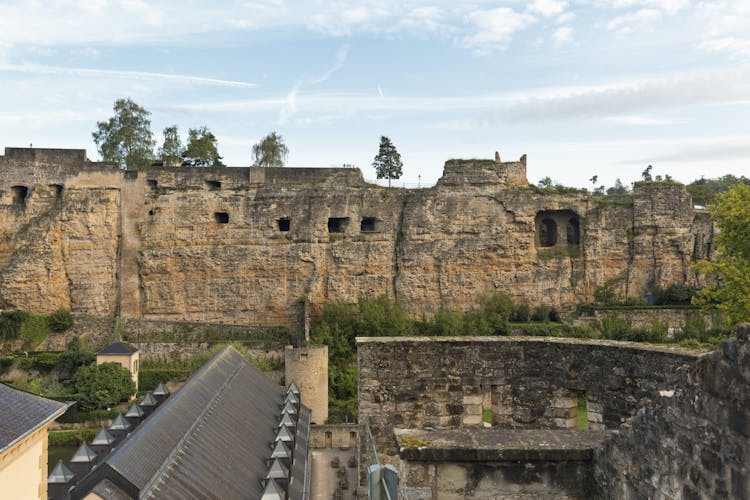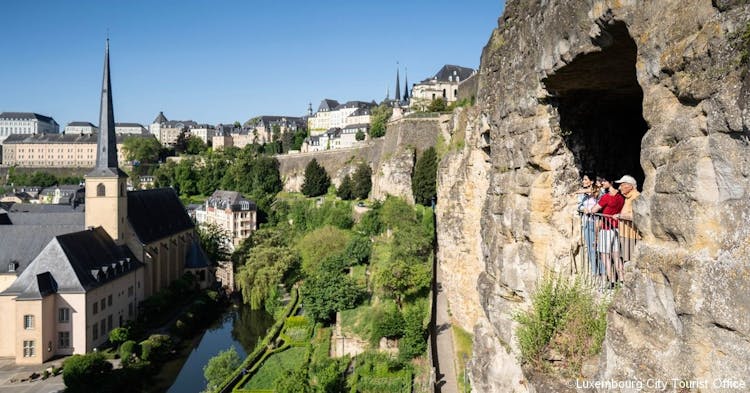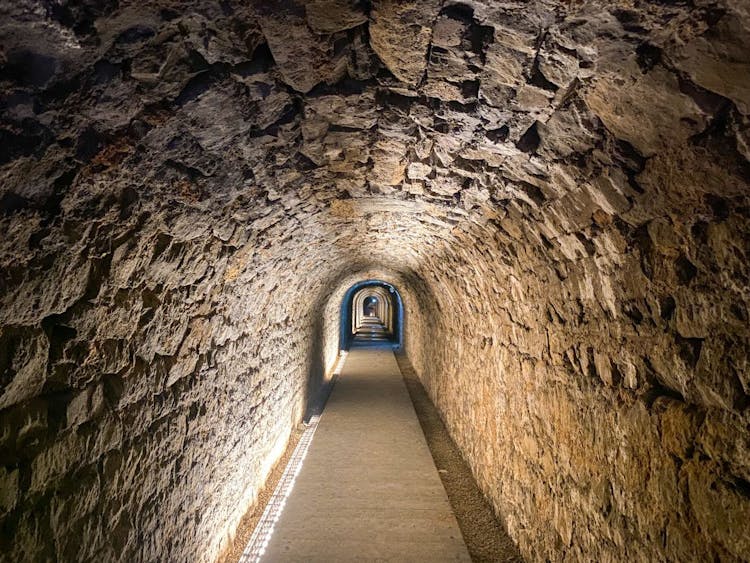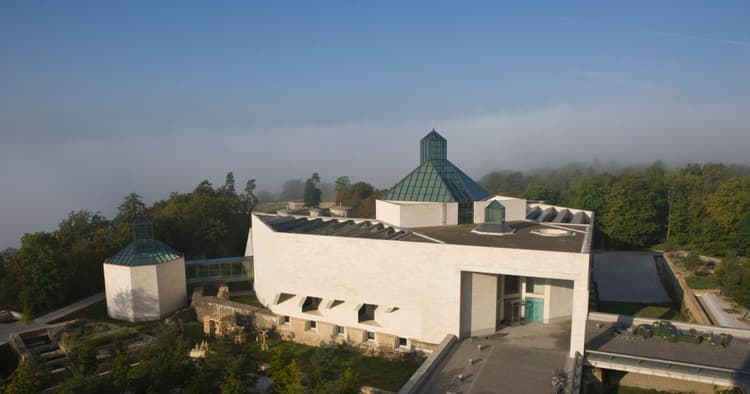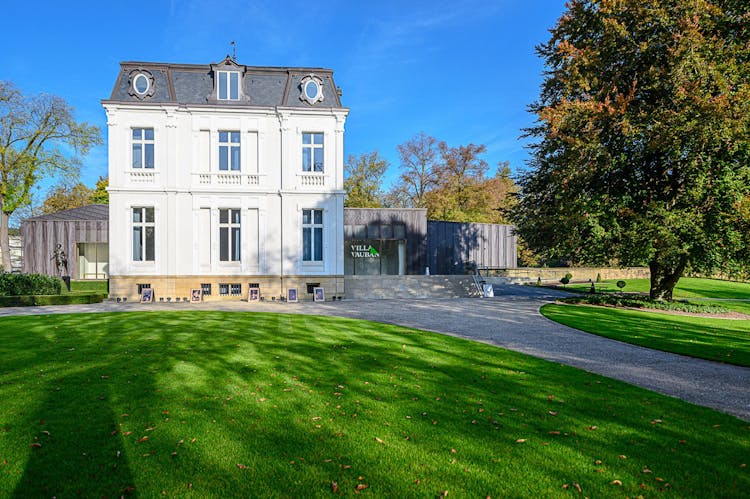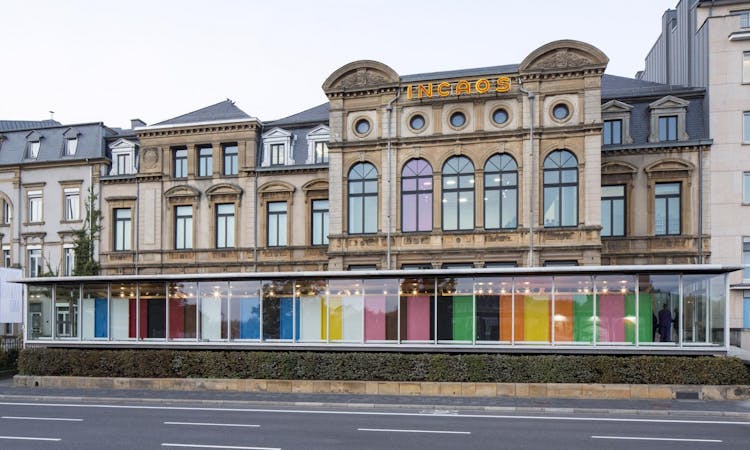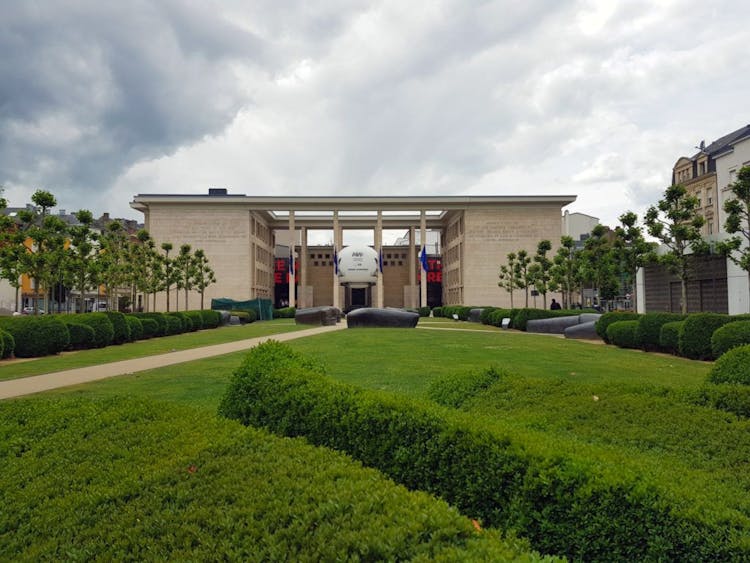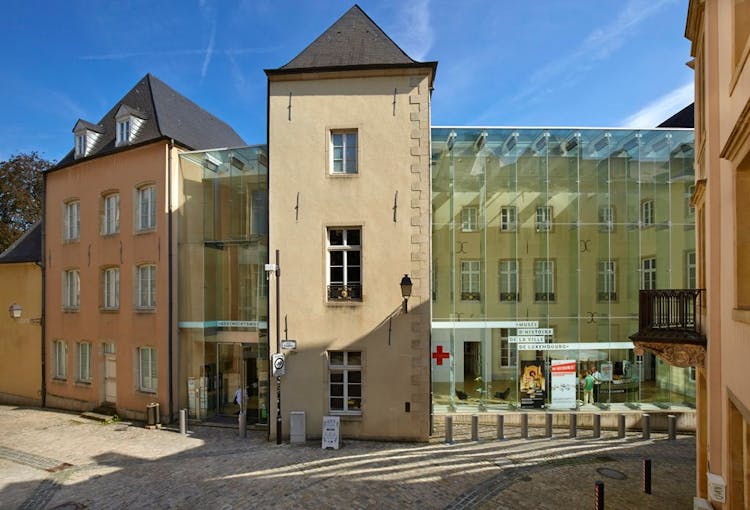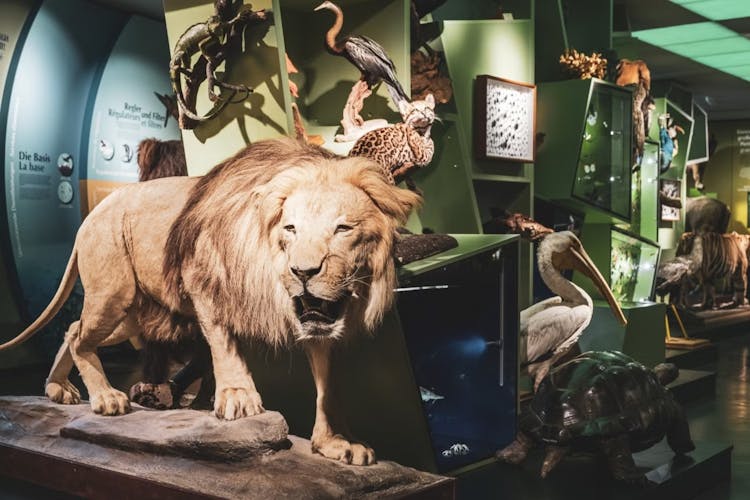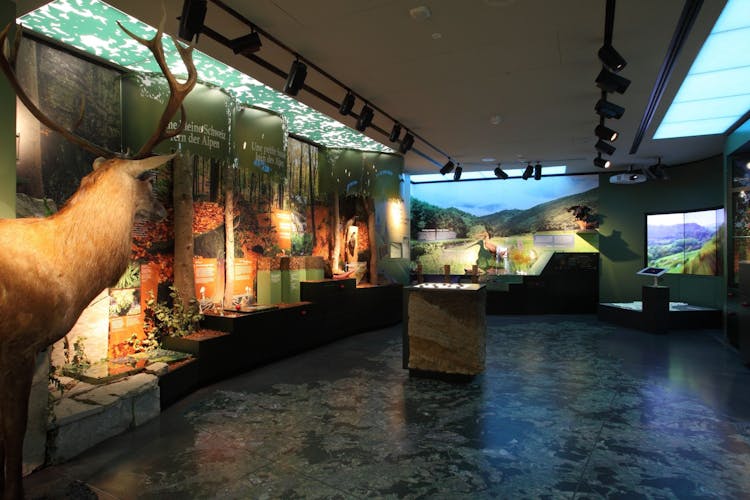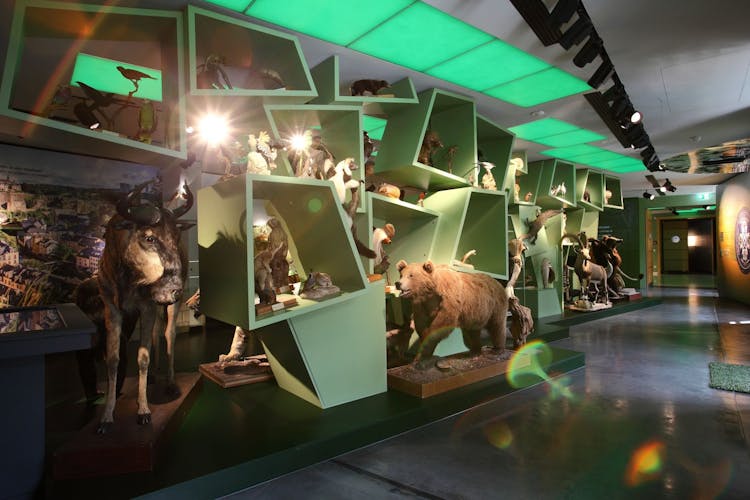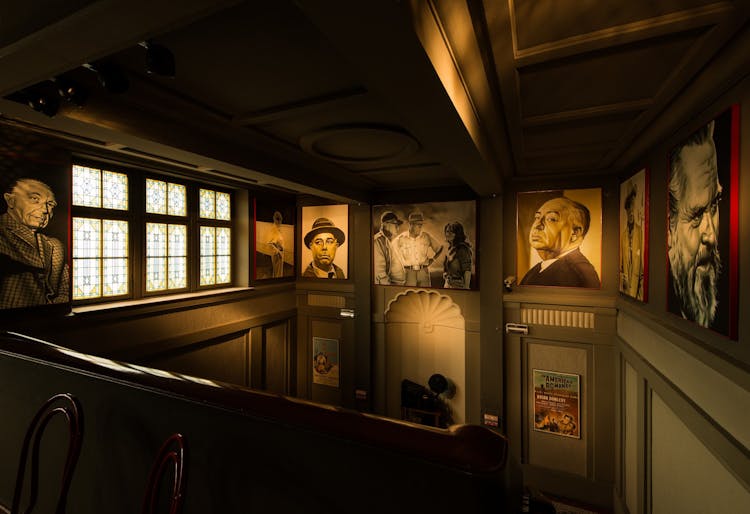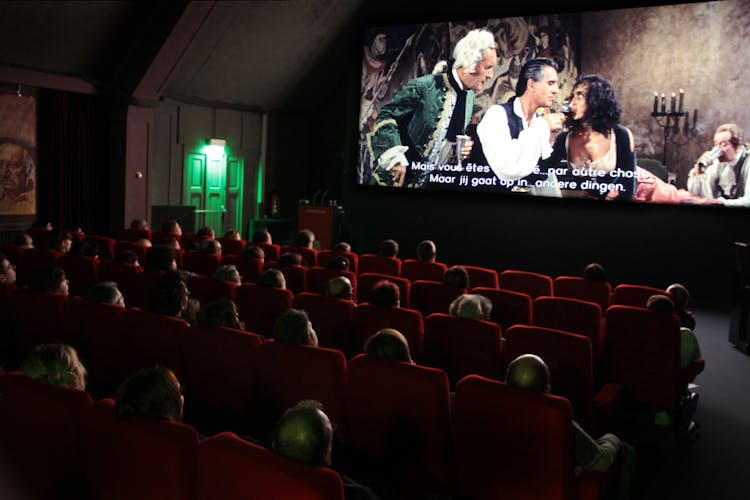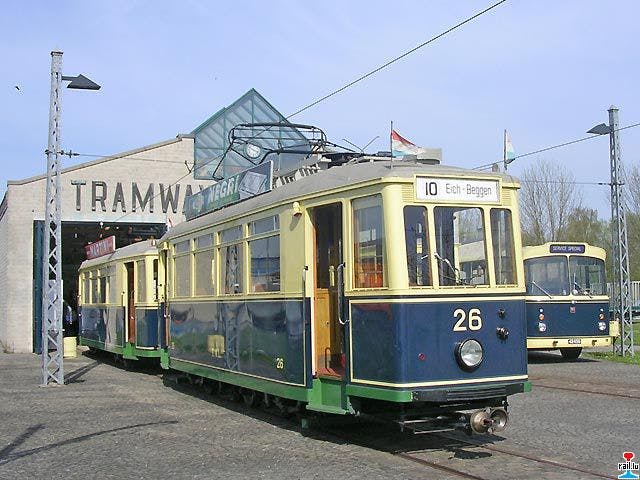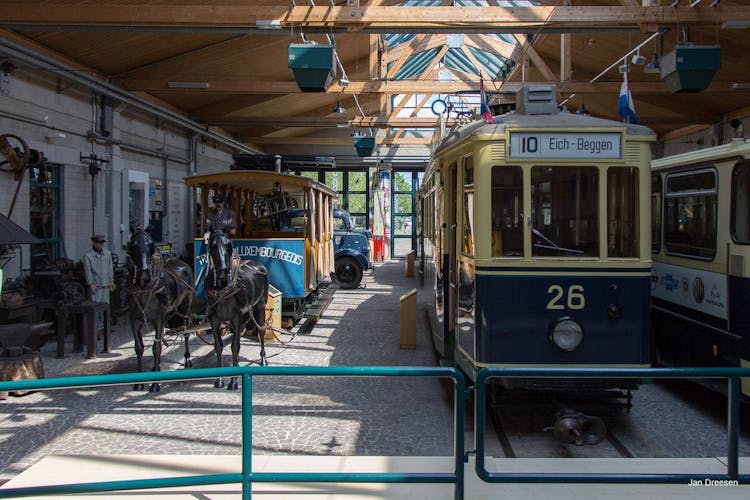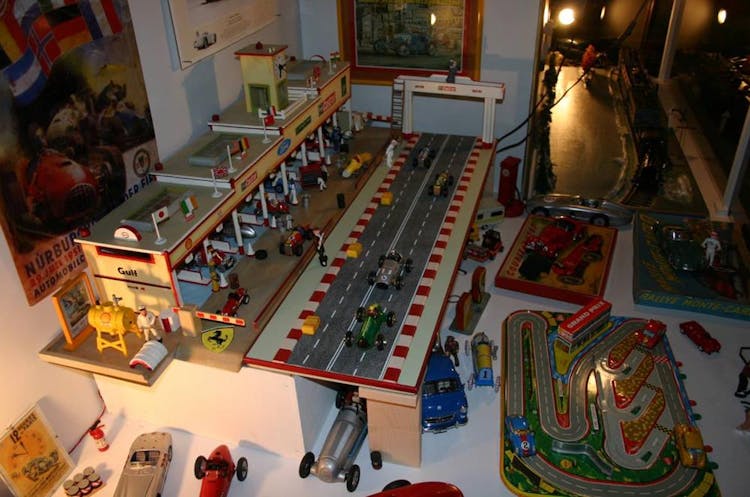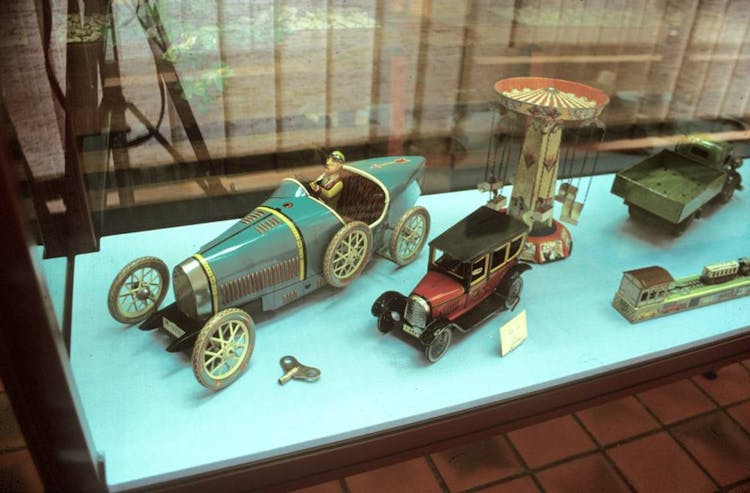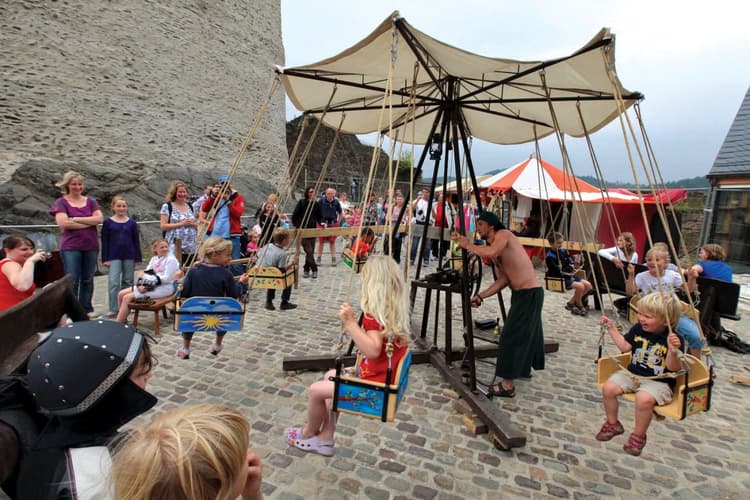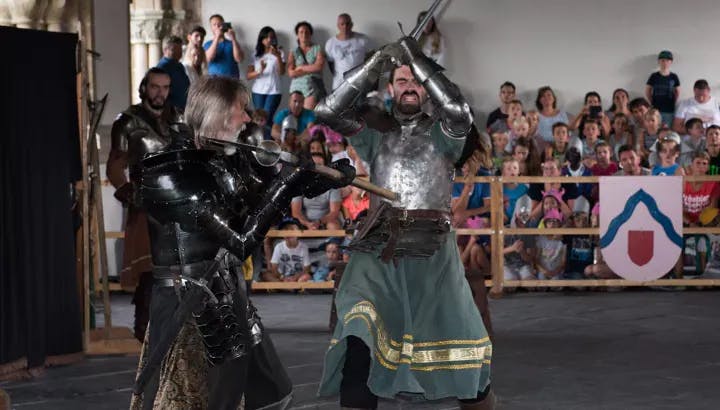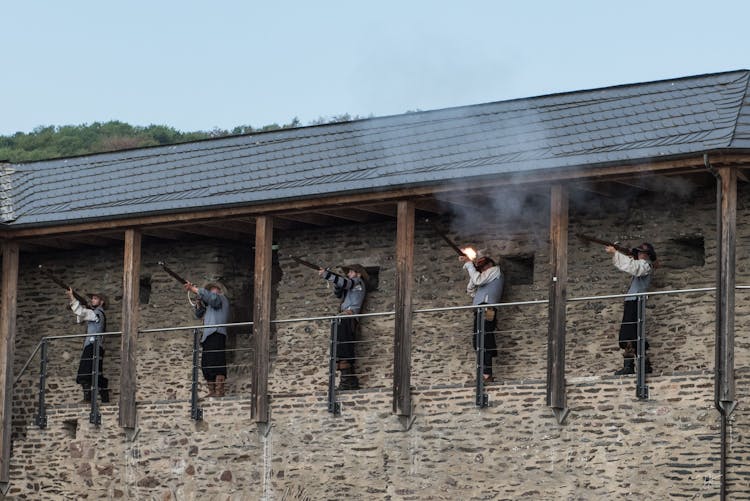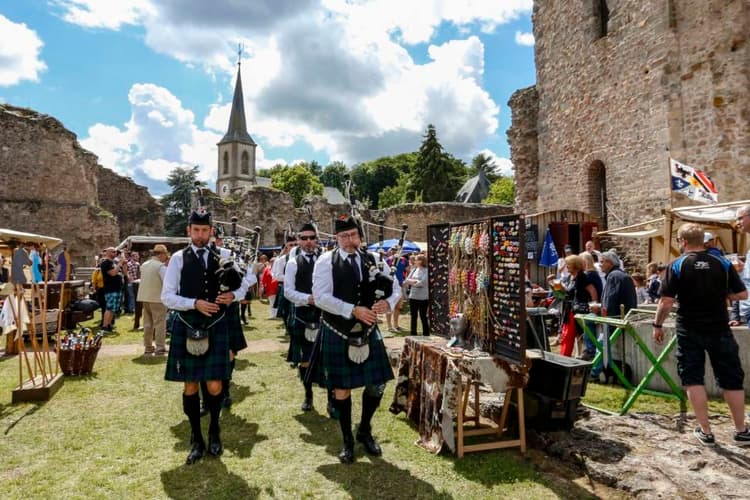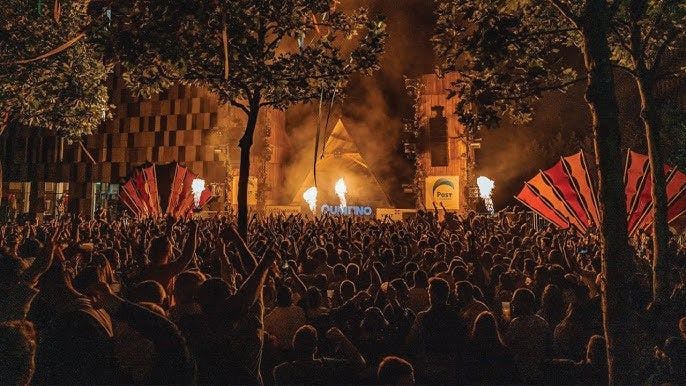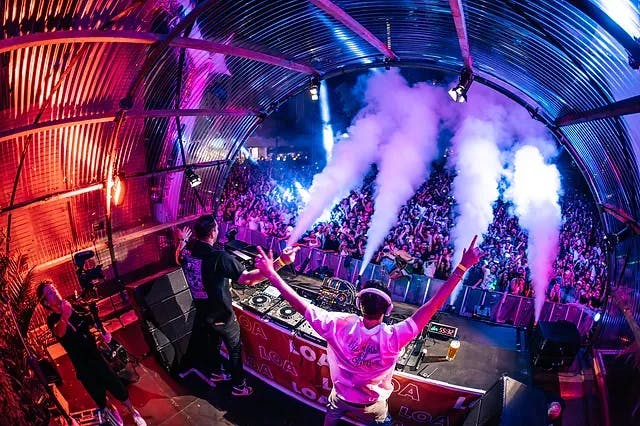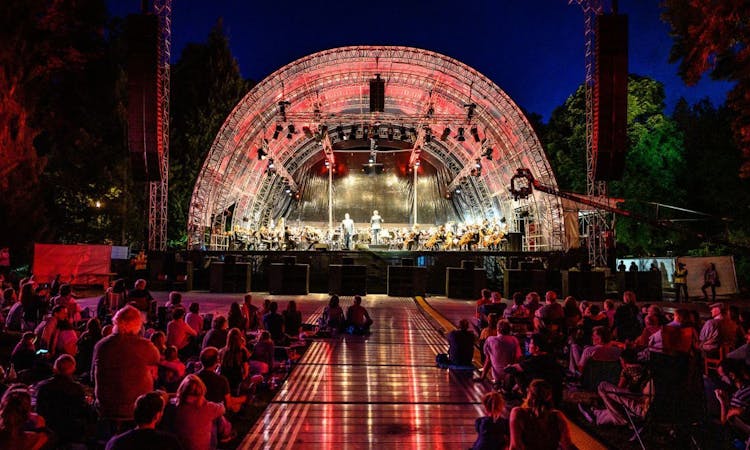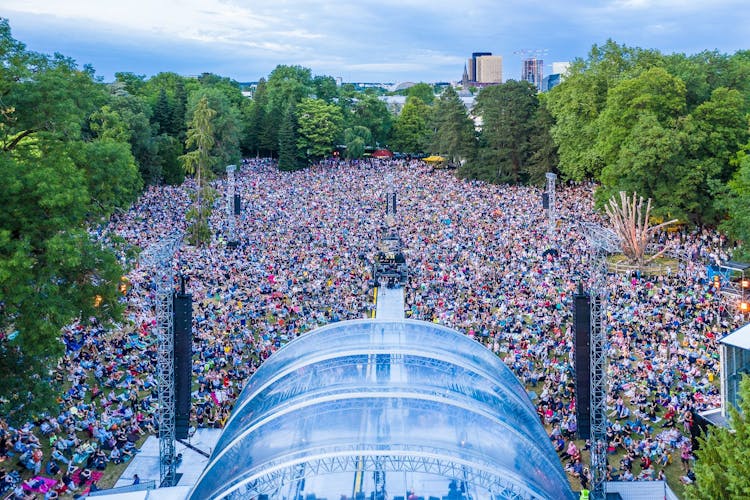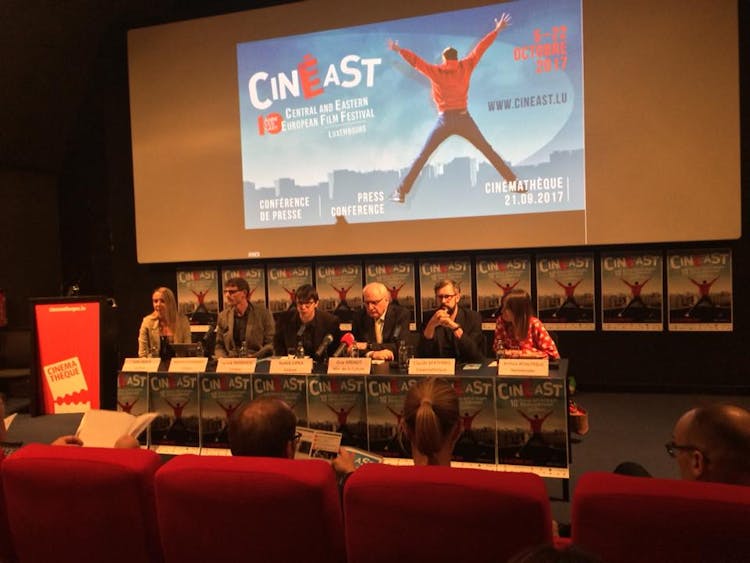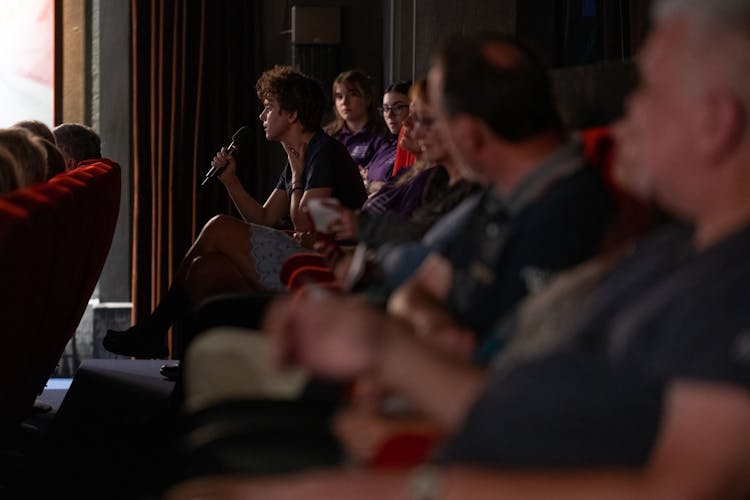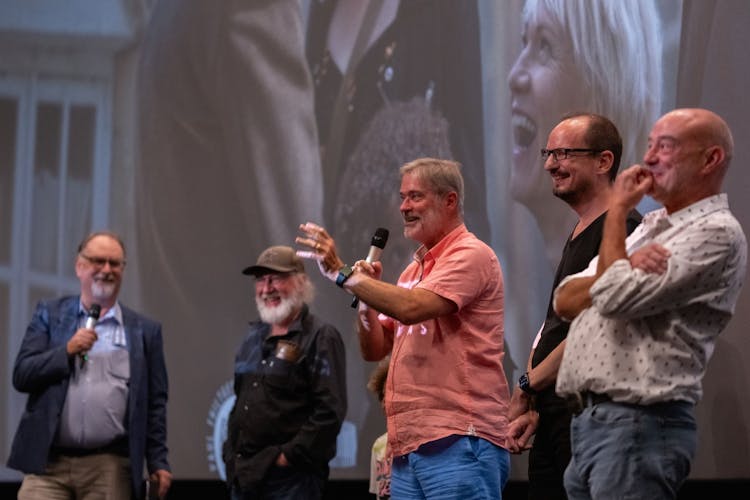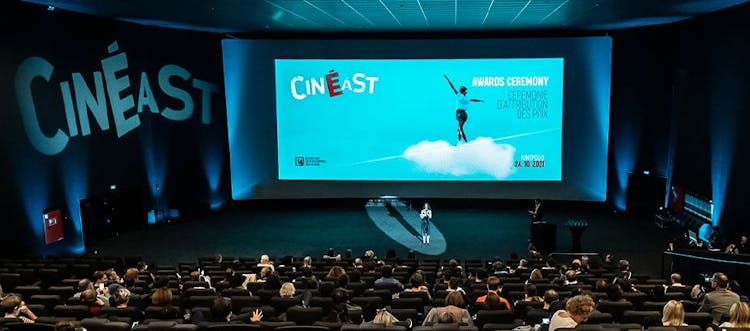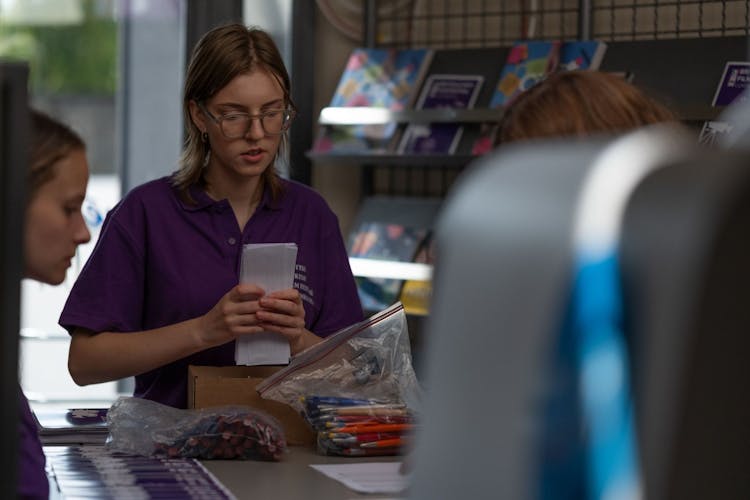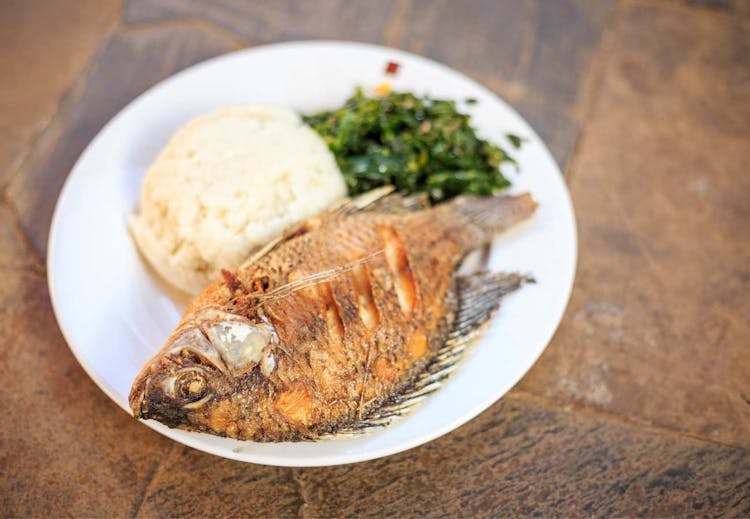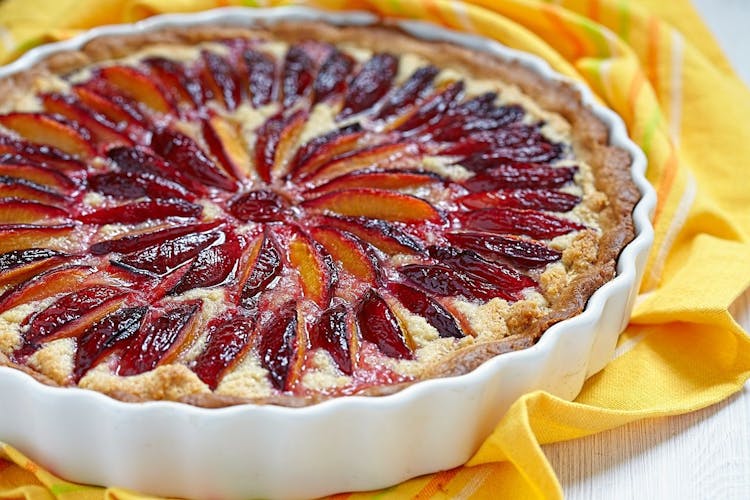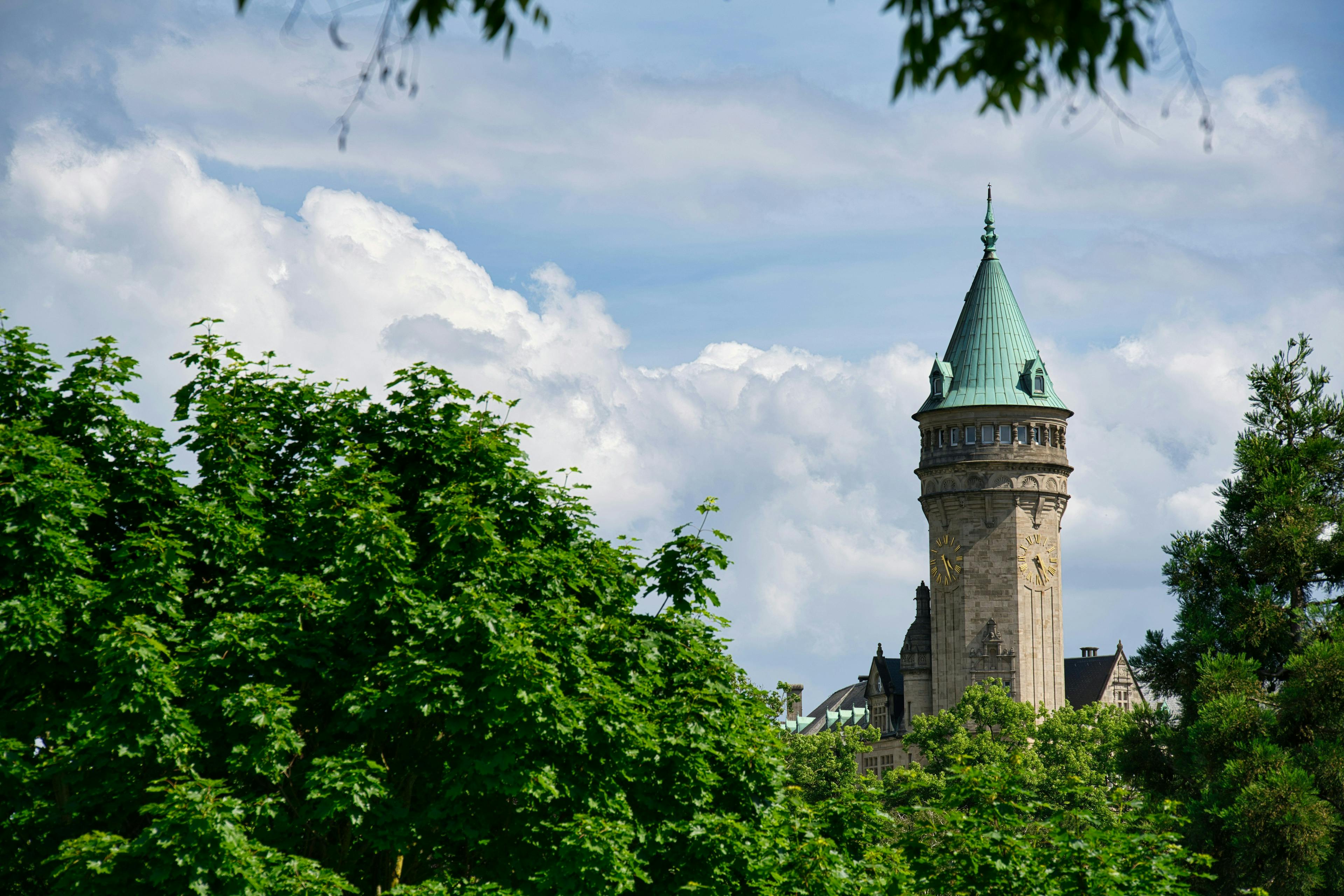
Luxembourg's culture and traditions
Luxembourg is proud of its rich culture and deep history. Legends surround its ancient castles, its forests and traditions are protected by UNESCO, and its people love all kinds of festivals and fairs. In this guide we will get to know the biggest events, interesting traditions and activities of the Grand Duchy.
Despite its small size, Luxembourg has a rich and vibrant cultural life, living traditions and amazing festivals.
Luxembourg is one of the oldest states in Europe, founded on the ruins of the Roman Empire (before our era, these lands were inhabited by the Gauls, and the territory itself was part of this ancient state). The first ruler of Luxembourg was Count Siegfried, who gained independence in 963 and built a castle on this site. Later it became the center of the city and its casemates became one of the main attractions of the capital.
The Legend of Siegfried and Melusina
A beautiful love story of Siegfried and Melusina has been passed down from those distant times.
The Magic Song
Conditions of love
A fateful night
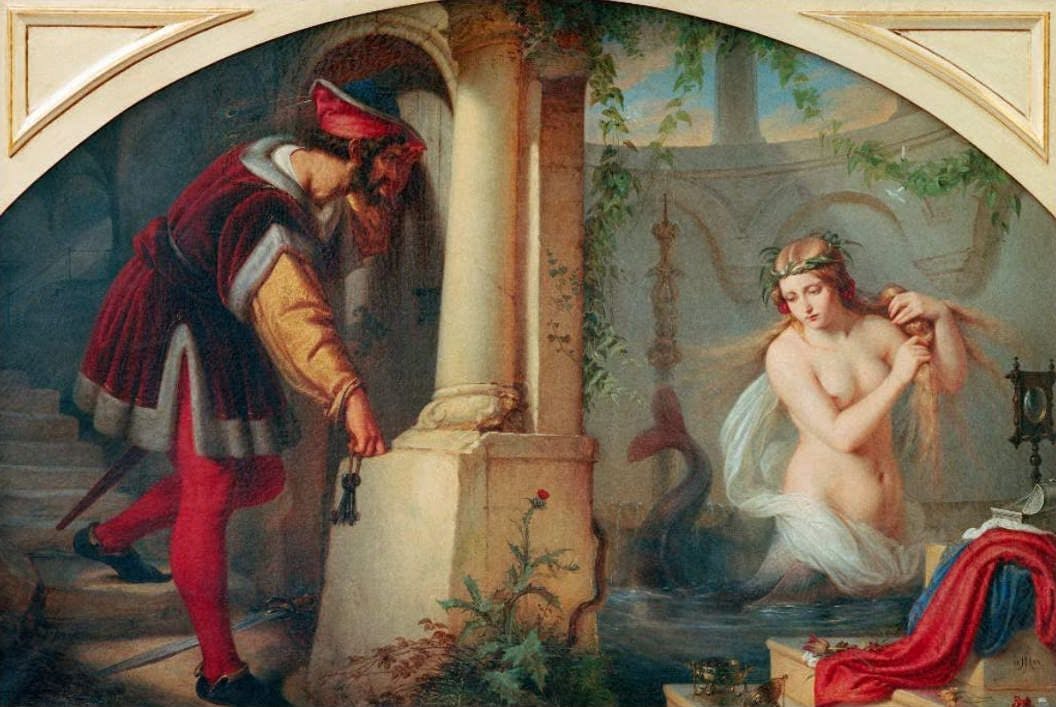
For several centuries, these lands have been contested by many nations. Here are some important dates in the history of Luxembourg:
- 1830: During the Belgian Revolution, part of Luxembourg's territory was taken by a neighboring state;
- 1866: "Luxembourg Crisis" — Napoleon tried to buy Luxembourg, but this was resented by Germany;
- 1867: During negotiations in London, Luxembourg was granted the status of permanent neutral territory;
- 1914 and 1940: occupation by German armies;
- 1948: the state renounced permanent neutrality;
- 1992: Luxembourg became a founding member of the European Union.
During the Luxembourg crisis, the motto " Mir wëlle bleiwe wat mir sin " ("We want to stay as we are") spread throughout the country. It remains the Grand Duchy's motto to this day. It can be found on some of Luxembourg's buildings, as well as on the coat of arms or the flag. The motto itself is a good example of the Luxembourgish people's commitment to identity: throughout their history, the inhabitants of this country have cherished their culture, their traditions and their distinctive identity.
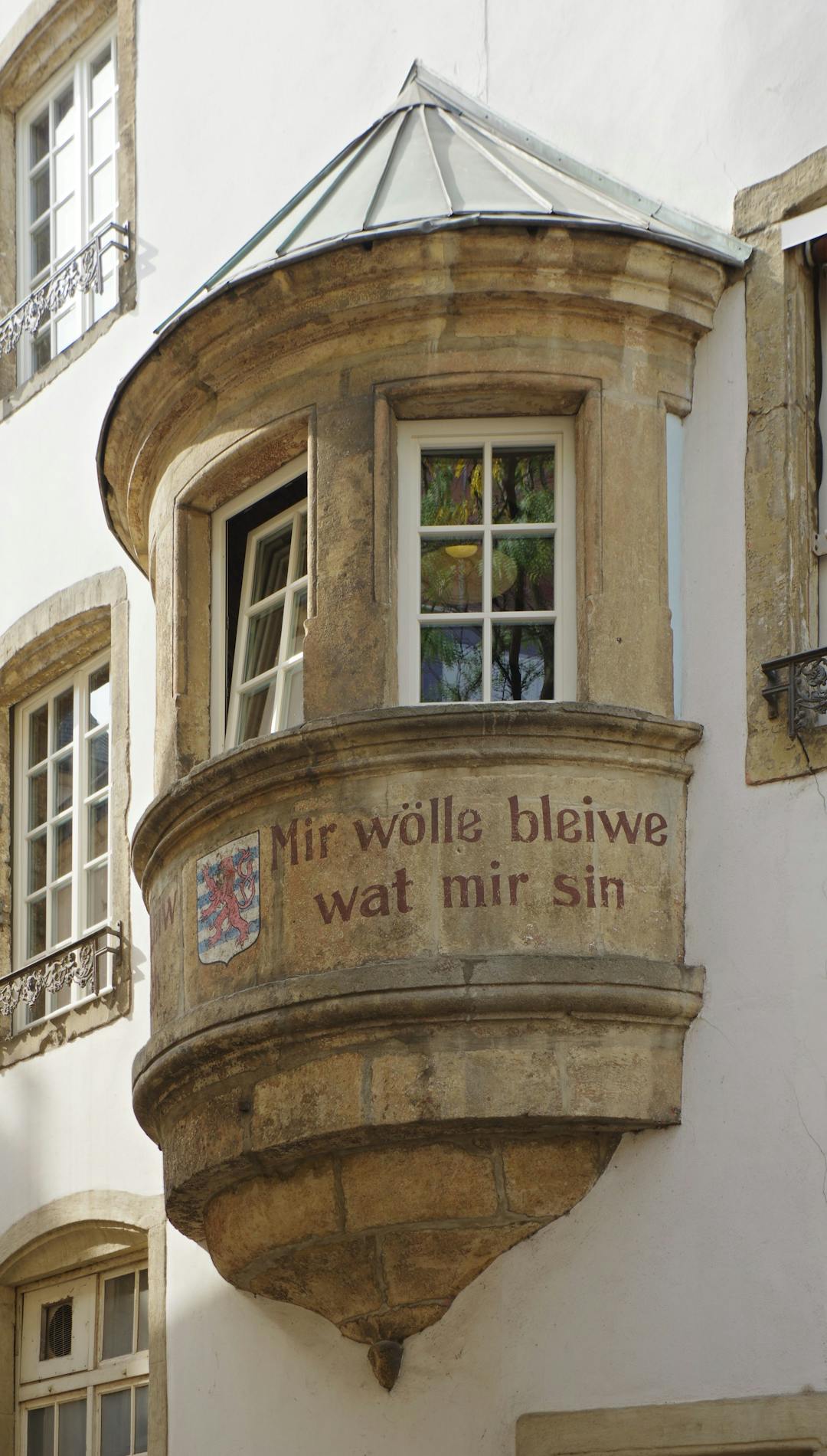
Read article
Owing to its rich history and its strategic location in the heart of Europe, Luxembourg has become home to many museums. The museums of the Grand Duchy are an endless source of information, allowing you to get a complete picture of the country's culture. As in many other countries and cities, the museums of Luxembourg can be divided into several categories.
Art galleries
One of the biggest categories is art museums and galleries. Here are three of the most popular galleries in the Grand Duchy.
One of Luxembourg's most popular and famous museums is located in the heart of the capital. The collection of the Museum of Modern Art MUDAM is housed in an unusual glass and metal building designed by architect Ieoh Ming Pei. Pei designed the glass pyramid at the Louvre in Paris, the Bank of China Tower in Hong Kong, and the Rock and Roll Hall of Fame in Cleveland.
Here you can see works by Marina Abramović, Mark Dean, Sophie Calle, Jan Fabre, Andy Warhol and many other icons of contemporary art. In addition to the permanent collection, there are temporary exhibitions, as well as events and workshops for children and schoolchildren.
Museum Contacts
- Phone: +352 45 37 85 1
- Website: mudam.com
- Opening hours: daily from 10:00-18:00, day off — Monday
Unlike the previous museum, the Villa Vauban is a collection of classical art. It is housed in a small villa built in 1873 in a lush and colorful urban park.
It houses works by 17th century Dutch artists, representatives of the Rembrandt school, such as Jan Steen and Cornelis Bega. You will also find French paintings by Eugène Delacroix and Jules Dupré. And the best thing is that you can see all this for free, because on Fridays from 18:00 to 21:00 the museum is open for free.
Museum Contacts
- Phone: +352 47 96 49 00
- Website: villavauban.lu
- Opening hours: daily from 10:00-18:00, day off — Tuesday
Don't let the name fool you — this "casino" is home to a center for contemporary art. In addition to the gallery and exhibitions, it hosts various conferences, workshops, concerts and many other events. Thanks to its advantageous location in the center of Luxembourg, the Casino Luxembourg has been able to grow into a major innovative museum and a true laboratory of contemporary art, where rare masterpieces are born.
The museum is known for showing new and unusual art. Its exhibitions often feature the work of young artists from different countries. It has exhibited works by Angela Bullock, Philippe Decrausat, Rosemarie Trockel and many others.
Museum Contacts
- Phone: +352 22 50 45
- Website: casino-luxembourg.lu
- Opening hours: daily from 11:00-19:00, day off — Tuesday
Historical museums
Owing to its ancient history, Luxembourg has a lot to tell those who live in and visit the Grand Duchy. You can learn more about the Grand Duchy's past in its many museums.
Located in Esch-sur-Alzette, this museum is dedicated to one of the most difficult periods in Luxembourg's history: the Second World War. Here you can learn about the Grand Duchy's courageous resistance, study photographs and personal belongings of people involved in the war, and come into contact with artifacts from this period.
Museum Contacts
- Phone: +352 54 84 72
- Website: mnr.lu
- Opening hours: daily from 11:00-18:00, day off — Monday
This city museum is housed in a 17th century building. Its exhibits tell the rich and unusual history of the capital of Luxembourg. Here you will find medieval objects, photographs and documents that will immerse you in the world of this city. The exhibition will take you on a journey from the birth of the city to modern times.
Museum Contacts
- Phone: +352 47 96 45 00
- Website: citymuseum.lu
- Opening hours: daily from 10:00-18:00, day off — Monday
The Luxembourg National Museum of Natural History tells you all about the flora and fauna of the Grand Duchy. It consists of three separate buildings and houses many different exhibitions. Immerse yourself in the world of rocks and minerals, study fossils and learn about the plants and animals that live here.
Museum Contacts
- Phone: +352 46 22 33 1
- Website: mnhn.lu
- Opening hours: daily from 10:00-18:00, day off — Monday
Other museums
In addition to art galleries and historical museums, Luxembourg has other unusual collections. Here are some interesting examples of how to spend your free time.
The Film Museum houses many archival films and other materials that tell the story of cinema in Luxembourg and the region. It organizes film screenings, conferences on this art form and many events for children and young people.
Museum Contacts
- Phone: +352 47 96 26 44
- Website: cinematheque.lu
- Opening hours: every day, detailed program on the museum's website
The Luxembourg Tram and Bus Museum takes you on an amazing journey through the transportation history of the Grand Duchy. Here you will find restored trams, buses, uniforms and much more.
Museum Contacts
- Phone: +352 47 96 23 85
- Website: transmusee.vdl.lu
- Opening hours are Thursday 13:30-17:30, Saturday and Sunday 10:00-18:00, weekends Monday-Wednesday and Friday
The Toy Museum is a real world of fairy tales and wonders for children. Here you can find the most unusual exhibits that will attract the attention of children and adults alike. There are antique exhibits, soldiers, dolls, cars and more than 1000 other toys. The collection is private, so you can visit it only by appointment.
Museum Contacts
- Address: 10, Grand-rue, L-9710 Clervaux
- Phone: +352 92 11 05
- Website: Toy museum
- Opening hours: by pre-registration
Read article
Luxembourg is proud of its history, its culture and its rich traditions. Twice in its history it has been awarded the honorary title of European Capital of Culture: in 1995 and 2007. There are nine UNESCO sites on its territory. The famous UNESCO World Heritage List included the capital's districts and fortresses in 1994. Later, the organization also recognized nature reserves, geoparks and the intangible heritage of the Grand Duchy.
Luxembourg's historic district and fortresses
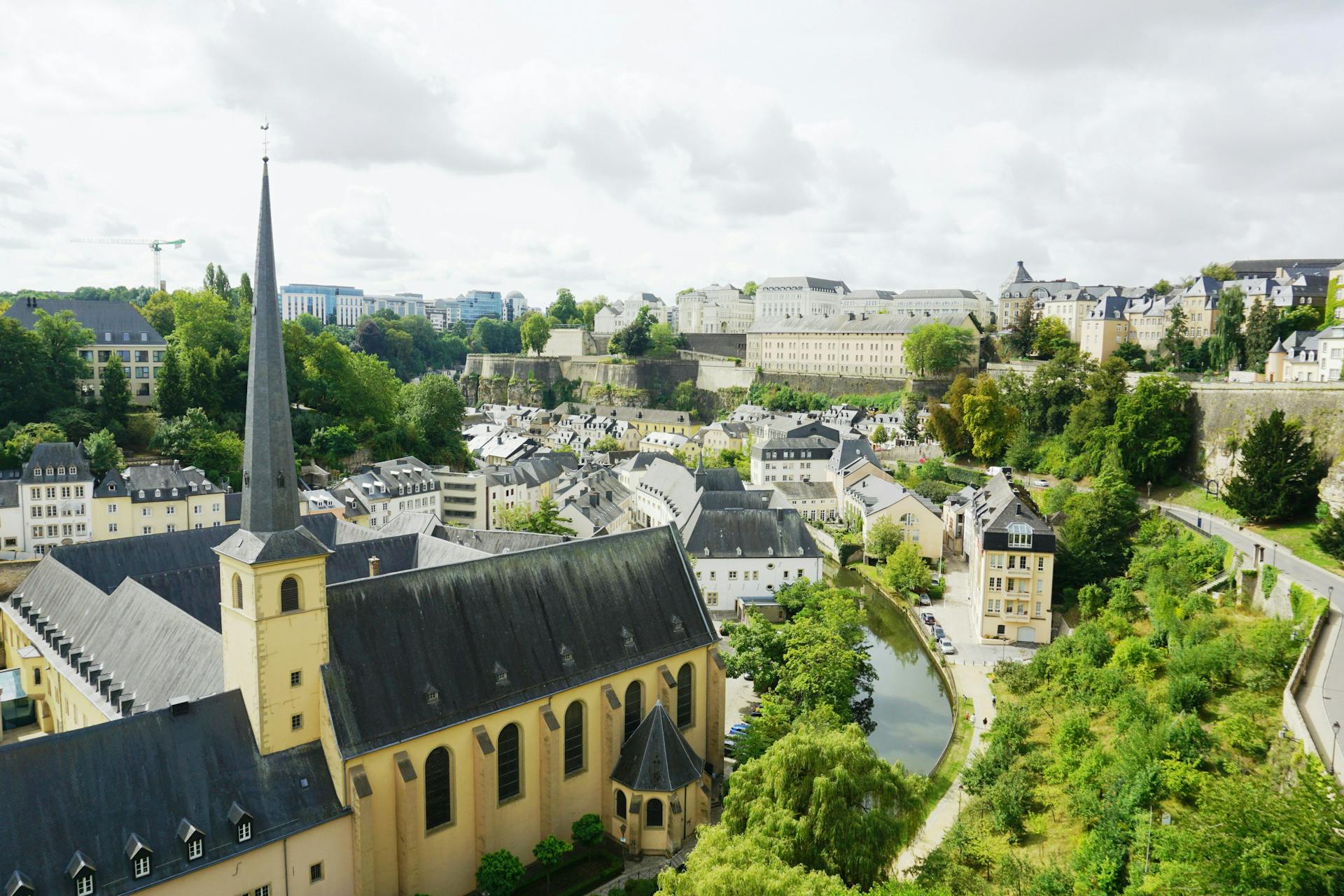
This is the heart of the state, the famous walls where Siegfried lost his beloved. Unfortunately, due to numerous wars and turmoil from the 16th to the 19th century, the walls of the fortress were repeatedly dismantled and rebuilt. Today it is one of the most popular tourist sites in the country.
Minett Region
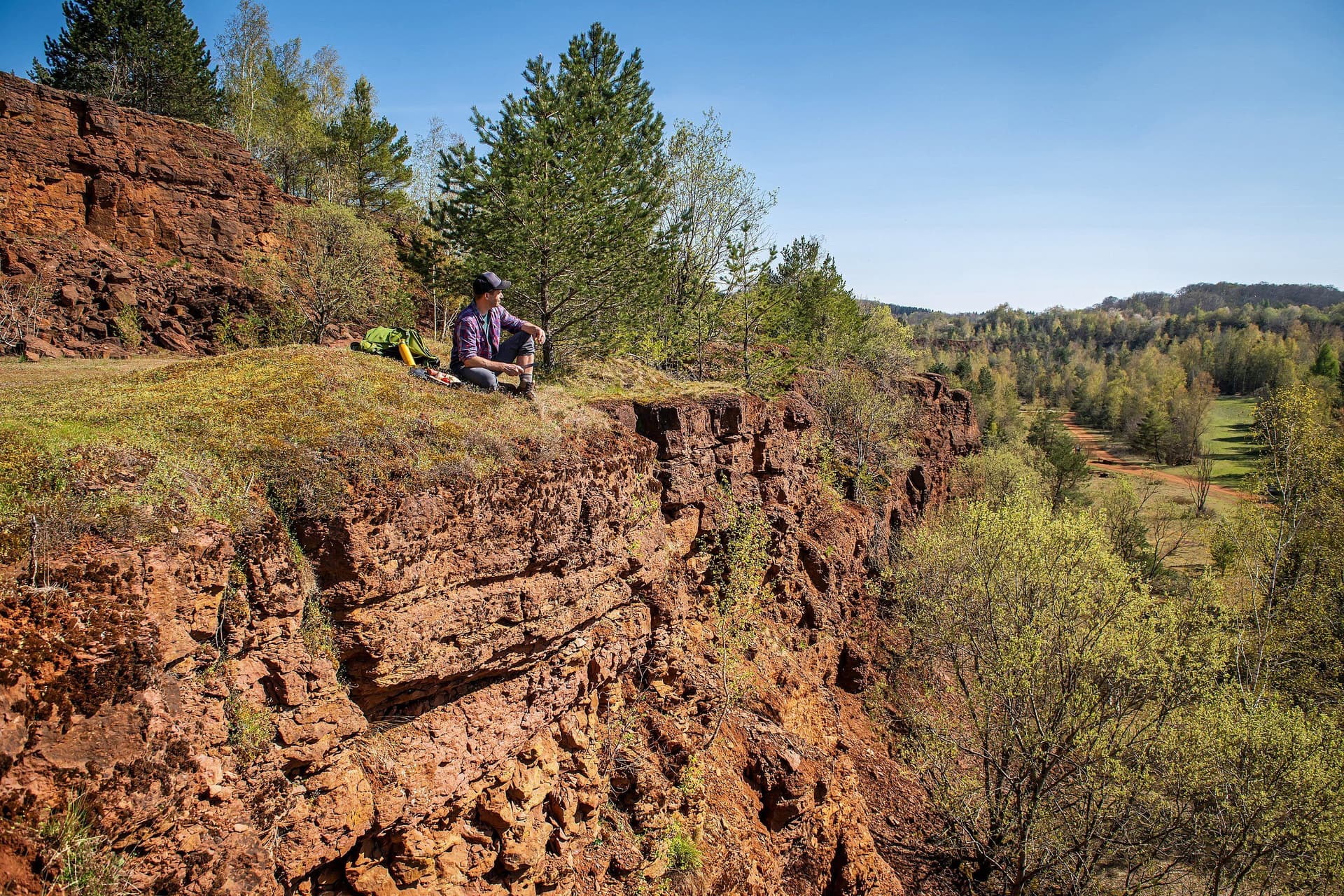
This nature reserve in the south of Luxembourg is on the UNESCO list of protected areas. It covers more than 200 kilometers (about 1/10 of the total area of the country). There is a special red trail (80 kilometers), thanks to which the reserve is sometimes called "The Land of Red Rocks". In the past, the steel industry was developed and iron was mined here. Now its amazing biosphere is protected by a world organization.
The exhibition "Family of man"
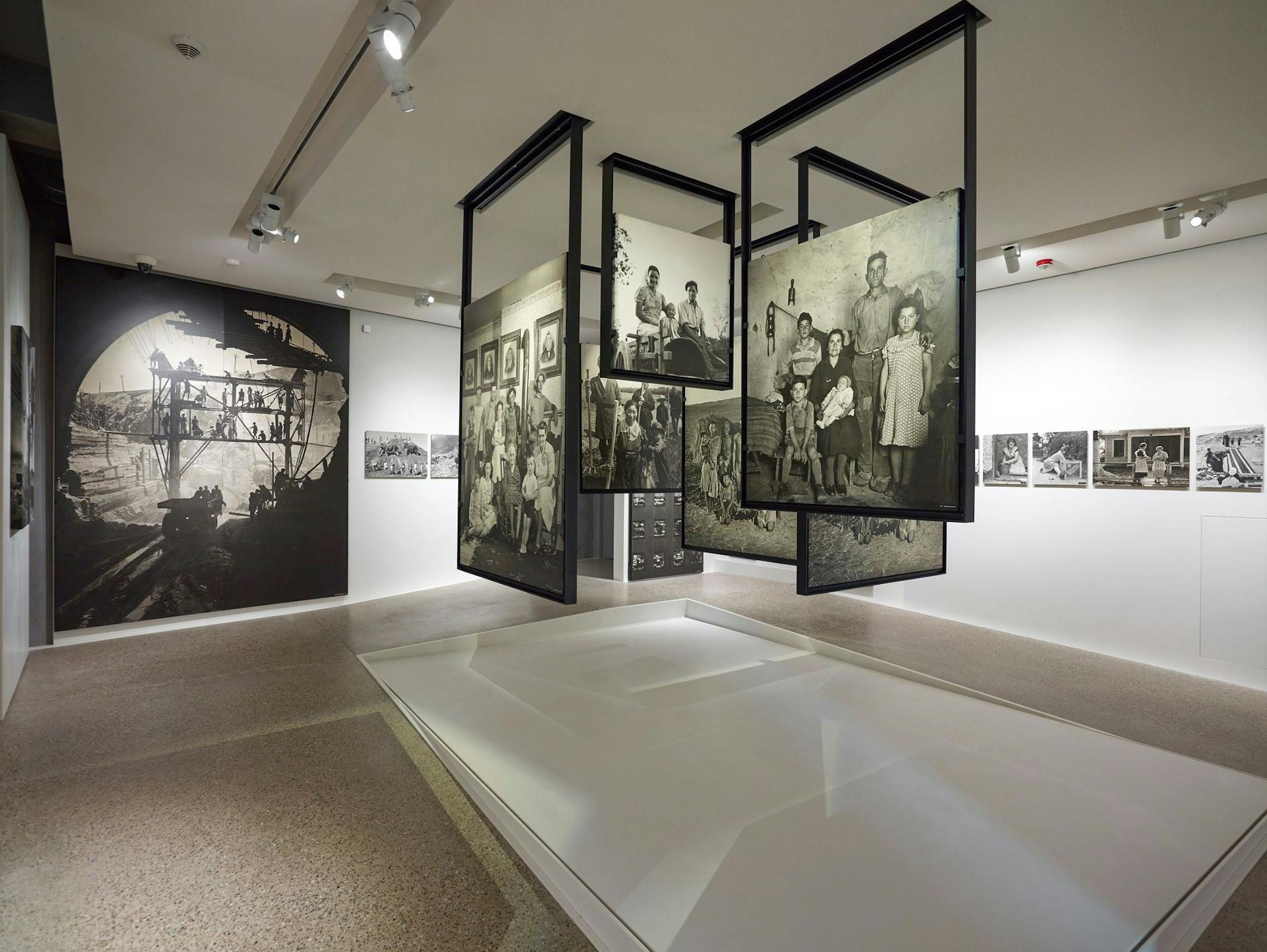
This exhibition was organized in 1955 by the photographer Edward Steichen (born in Luxembourg and raised in the United States) for the New York Museum of Modern Art. Its main characters are people who lived in the 1950s, and the exhibition itself is divided into 32 themes, arranged chronologically. The exhibition is now at the Museum of Clervaux and is also on the UNESCO Memory of the World list.
University of Luxembourg
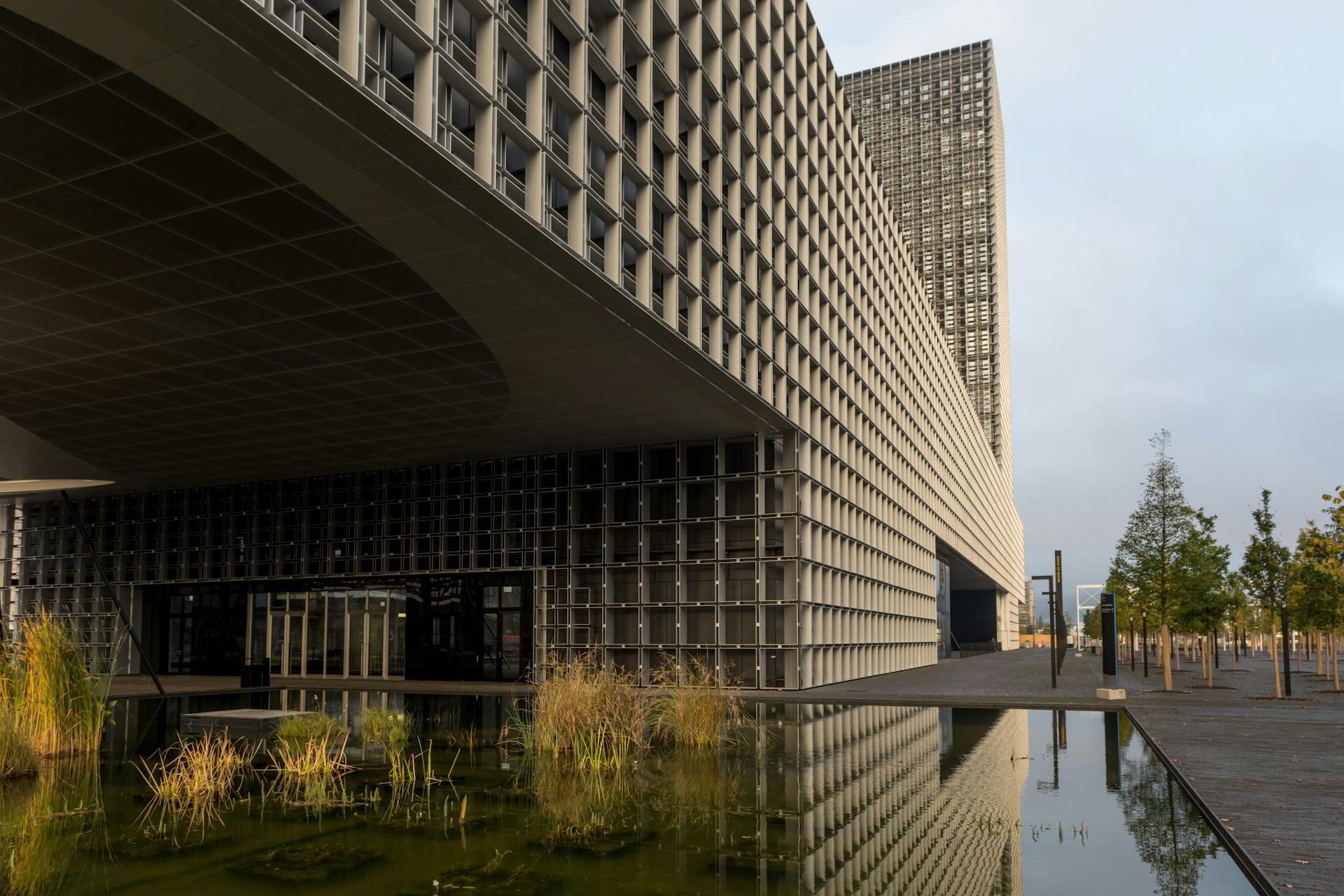
A special network of UNESCO universities includes a chair in human rights at the University of Luxembourg. Students and staff actively contribute to the activities of the world organization, participate in international conferences and organize global events.
Most of Luxembourg's sites can be found on the UNESCO intangible heritage list:
Traditional irrigation
Transhumance, the seasonal droving of livestock
Hauspeschbléiser
Hopping procession of Echternach
Midwifery
For more information on all UNESCO sites in Luxembourg, visit the organization's official website.
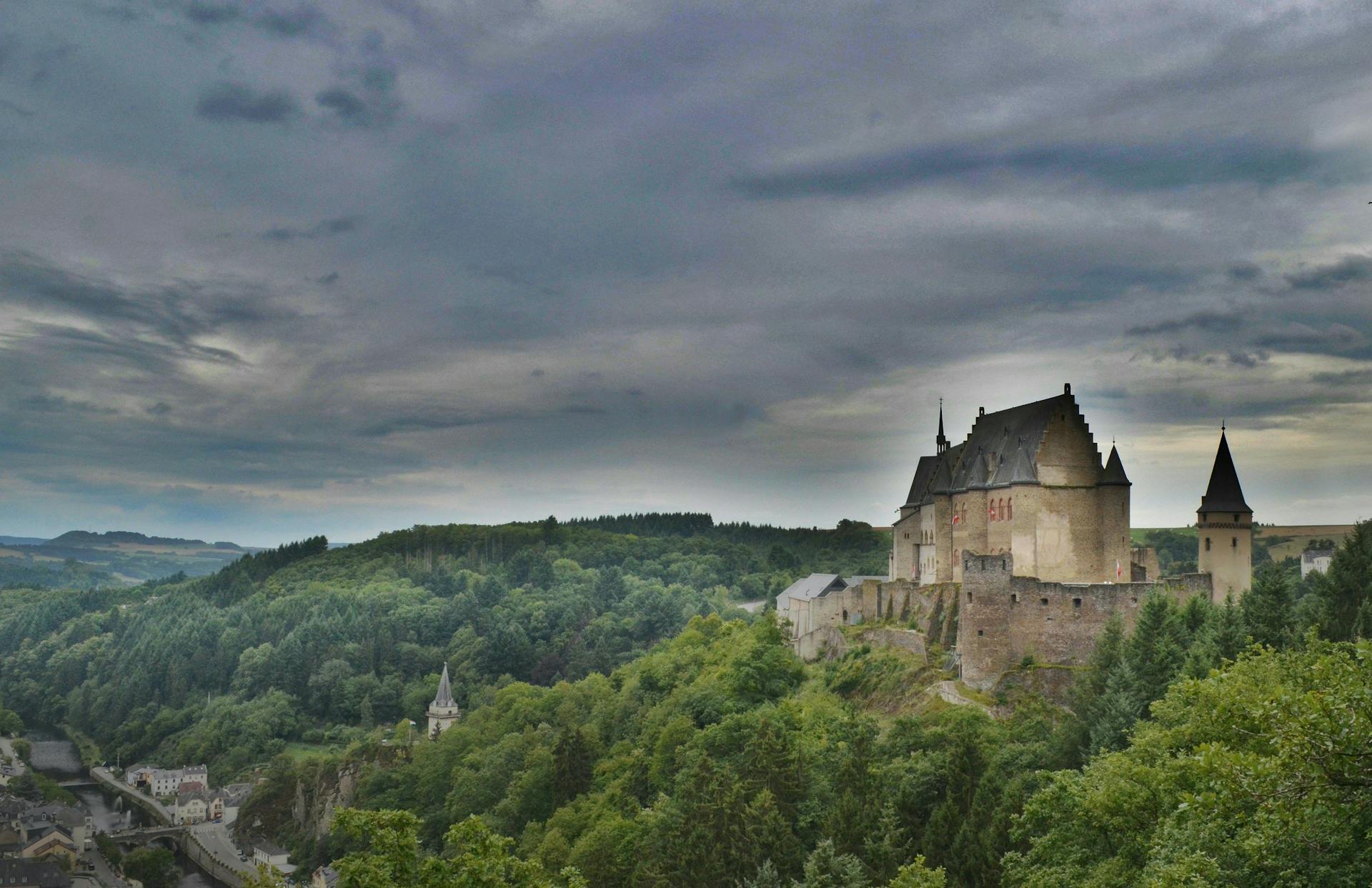
Thanks to its ancient history, Luxembourg boasts many unusual buildings: castles, abbeys, monasteries and various fortifications. You can find something unusual and interesting just by stepping over the threshold! The Grand Duchy will surprise everyone, even the most demanding traveler.
There are 76 castles and châteaux, the most beautiful of which are in Vianden, Beaufort, Bourscheid, Clairvaux and Larochette, but others are worth a visit, especially if you travel with a guide or an expert on Luxembourg's history.
To be honest, I'm not a big fan of castles and chateaus. But when you see them up close you can't help but feel something: their magnificence and the power of a bygone age. I don't know how to explain this feeling of connection, it is simply fascinating. It is true that the state of the castles varies, but in the last few years, the government has been gradually buying up the most important sites and restoring them.
In addition, these castles or their ruins often host traditional festivals, exhibitions, open-air concerts and other events. If you have a memorable date on your calendar and don't know where to go, try visiting the nearest castle: you're sure to find fairs, tastings, musical performances and activities for children.
You don't have to travel far to visit one of Luxembourg's most popular castles, located in the heart of the capital. It is the main residence of the Grand Duke, where he works, receives dignitaries and carries out his duties. Fortunately for tourists and historians, the building has been preserved almost in its original form, having suffered little damage during the wars.
You can enjoy its 16th century Flemish Renaissance exterior all year round. However, you can only go inside in the summer. The castle is open to visitors in summer and early fall.
- Phone: +352 22 28 09
- Website: monarchie.lu
This castle is located 40 km from the capital in the town of Vianden, near the Ardennes. It was built in the XI-XIV century on the foundations of a former Roman castle. In the XIX century, one of its owners tried to demolish the castle and sell it for materials for developers. In 1977, the structure was finally restored and turned into a cultural monument.
By the way, Vianden is home to the Victor Hugo Museum. This is how the writer himself described the town: "Vianden has two things that console me equally: a sinister ruin and the merry townspeople".
- Phone: +352 83 41 08 1
- Website: castle-vianden.lu
This castle was once one of the most powerful and largest fortresses in the east of the Grand Duchy. Situated on a 35-meter high hill, its ancient walls date back to the 11th century, and you can enjoy picturesque views, climb the castle's main tower to admire the colorful panorama and the lake, and visit the torture chamber with all its implements and devices.
- Phone: +352 83 66 01
- Website: beaufortcastle.com
Read article
The people of Luxembourg are very fond of folk festivals — there are so many different festivals for all ages and tastes.
To find out about the most important holidays and weekends in the Grand Duchy, check out our special calendar.
Medieval fairs
These festivals are among the most popular in Luxembourg. Traditionally, they are held in the streets or within the walls of castles or their ruins.
You can find these festivals in almost every castle, mostly in the summer or fall when it is warm. Here are some of the most popular events that take place regularly in the Grand Duchy.
Vianden
Useldeng
Koerich
Dudelange
Musical open-airs
Open-air music festivals are a summer tradition that has spread all over the world, and Luxembourg is no exception. Every year, dozens of events take place here, bringing together hundreds of artists and thousands of music lovers from all over Europe.
Luxembourg's music scene is rich in events. Here are some of the biggest festivals that take place every year.
LOA Festival
Fête de la Musique
Kinnekswiss Loves
Luxexpo Open Air
To make sure you do not miss out on the most interesting festivals and other events in Luxembourg, keep an eye on our calendar and check out our special events section.
Cinema festivals
Another large category of the Grand Duchy's screenings are film festivals. Despite its modest size, Luxembourg has given the world several movie stars, such as actress Vikki Krieps, director Anne Fontaine and filmmaker Bady Minck.
Of course, there are not as many film festivals in Luxembourg as there are music festivals. But that only makes them more valuable and their programs more concentrated. Here are some of the country's most colorful events.
Luxembourg City Film Festival
CinEast
British & Irish Film Festival Luxembourg (BIFFL)
Read article
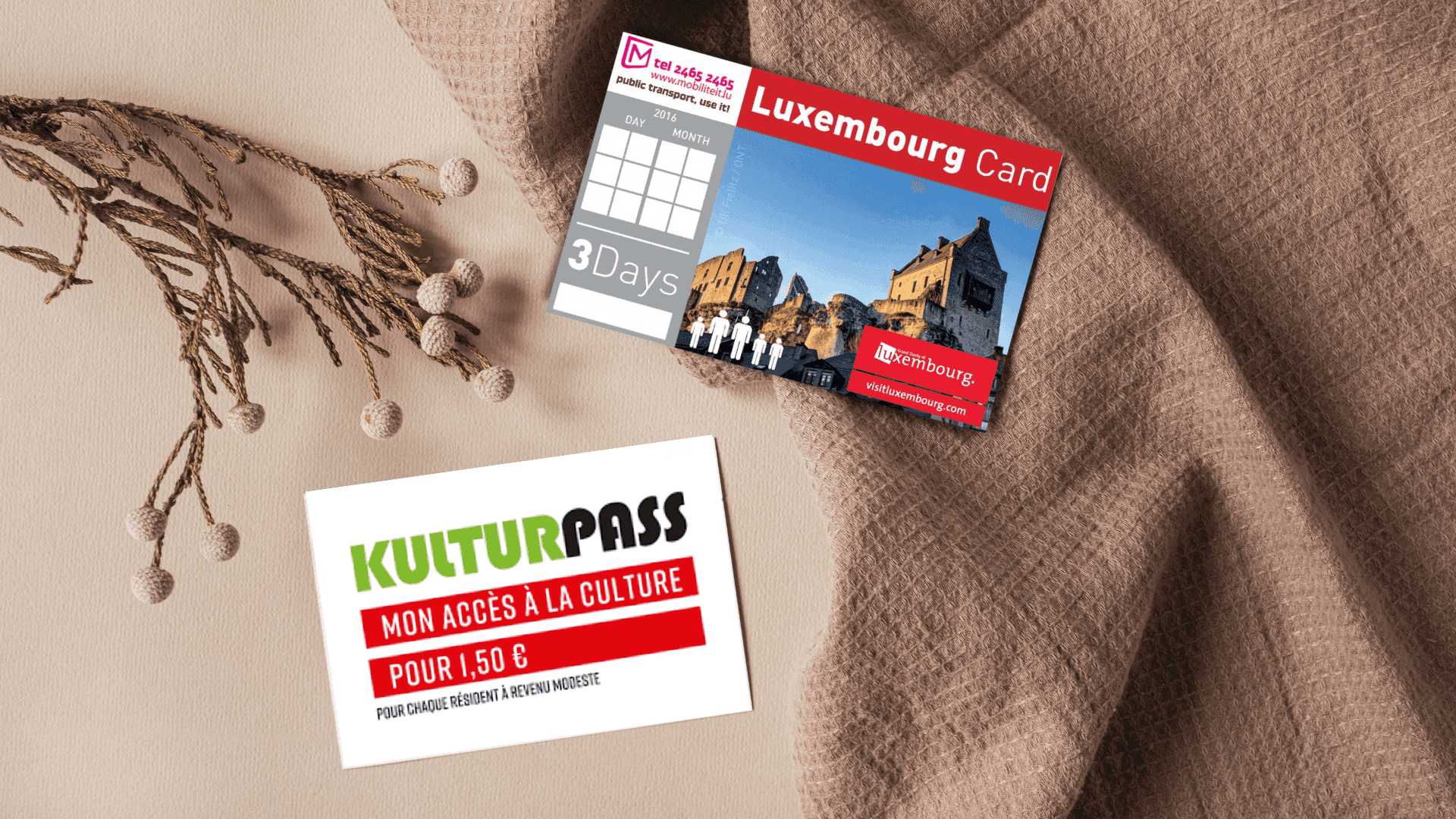
The Kulturpass is a special card that allows people with a low income to save money on cultural events in Luxembourg. It is free, personalized and valid for two years.
Through this program, Kulturpass holders receive discounted or free admission to museums and other cultural institutions, as well as access to concerts, festivals, theater performances, and more.
Who can apply for the Kulturpass?
- Any person (adult and child) or household meeting the criteria for the cost of living allowance and/or the energy allowance issued by the National Solidarity Fund (FNS);
- Any person who has applied for international protection (DPI);
- Any person benefiting from temporary protection (BPT);
- Any person benefiting from a low-income household grant issued by the Centre psycho-social et d’accompagnement scolaire (CePAS);
- Any student benefiting from a "hardship fund" or "food vouchers" issued by the University of Luxembourg;
- All international volunteers and au pairs in precarious situations who are taking part in programmes run by the Service National de la Jeunesse (SNJ);
- Any person receiving income for the severely disabled (RPGH).
Documents for processing
The process of obtaining the card is not complicated: you just need to come to one of the program's collection points with the necessary documents.


Card collection points
There are a total of 15 card collection points. You can find out the nearest one on the official website of the program.
Once your application is approved, you will receive your Kulturpass.
Where the Kulturpass can be accessed
Partners in the program include dozens of museums, cultural centers, concert halls, festivals, and many other institutions. For example, the CinEast and LOA festivals, which we told you about earlier, are participating in the program. Here are the largest participants:







Remember that when buying tickets, you must always show your Kulturpass and your ID.
Luxembourgish cuisine is an essential part of the Grand Duchy's culture: no celebration is complete without a traditional dish. During festivities, you will always be offered a taste of a local specialty, and the secrets of preparing some of them are kept by families and handed down from generation to generation.
Luxembourg's cuisine is closely linked to the traditions of its neighboring countries. Some of the Grand Duchy's dishes have their origins in France, Belgium or Germany.
Luxembourg's main dishes
Of course, it is difficult to list the most popular or most important national dishes of the Grand Duchy: everyone likes something different. But if you want to get to know Luxembourg's cuisine, you can start with these delicacies.
Or pork spine with beans. The people of Luxembourg are very fond of pork and love to have various smoked meat dishes for lunch and dinner. The pork backbone for this dish is smoked and served with beans, turnips and radishes. It is a very hearty and quite fatty dish.
Although the method of preparation was invented in Belgium, Ardennes ham is very popular in Luxembourg. This appetizer is, of course, similar in taste to Jamon, but the main difference lies in its preparation: Ardennes ham is cold smoked. It is usually served with fish or other meat dishes.
It is also sometimes stuffed with ham. Most often, however, the fish is served in its classic smoked form, accompanied by fresh vegetables and a glass of wine. Lifehack: The best place to try Luxembourg trout is the village of Schengen on the Moselle River. You will find the freshest product there!
This pastry came to Luxembourg from Germany and is especially popular during Lent, on Pretzel (Fourth) Sunday. According to Luxembourgish tradition, young people give their sweethearts a bretzel on this day, and if the feelings are mutual, they receive an egg in return at Easter.
Quetscheflued (plum pie), Verwurelter (sugar-coated doughnuts) and Äppelklatzen (apples in dough) are particularly popular in Luxembourg. If you're in the countryside, you're likely to find an extraordinary variety of pies with the most unimaginable fillings.
Read article
Where to taste national dishes
The traditional cuisine of Luxembourg can be enjoyed in many restaurants throughout the Grand Duchy. For more authentic tastes, you can attend special fairs, festivals or tastings that are held from time to time in different parts of the country and in different places.
Léa Linster
Guillou Campagne
Mosconi
Read article
Frequently Asked Questions (FAQ)
What UNESCO sites are there on the territory of Luxembourg?
In total, there are nine different sites of the organization on the territory of the Grand Duchy. However, only the historic center of the capital of Luxembourg and its fortresses are on the UNESCO World Heritage List.
What is Kulturpass?
This is a special program for those whose income does not allow them to attend cultural events at full price. Thanks to the Kulturpass, you can enter museums, theaters, festivals and concerts for free or for 1.5 euros per person. All you have to do is go to one of the 15 issuing offices with your identity card, a certificate proving your income and fill in an application form.
What national dishes are worth trying in Luxembourg?
Luxembourg's traditional dishes can be tasted at numerous festivals. Start your journey into traditional cuisine with Ardennes ham, river trout or pork ridgeback. These are the most popular dishes of the Grand Duchy.
Source: www.casino-luxembourg.lu, mnr.lu, www.citymuseum.lu, www.mnhn.lu, www.vdl.lu, tramsmusee.vdl.lu, www.beaufortcastles.com, www.loa.lu, www.useldengmedieval.lu, www.buergfest.lu, www.fetedelamusique.lu, www.vdl.lu, www.atelier.lu, luxtoday.lu, www.luxfilmfest.lu, www.cineast.lu, www.bifilmseason.lu, www.visitluxembourg.com, www.researchluxembourg.org, www.en.wikipedia.org, www.city.vdl.lu, www.visit-vianden.lu, www.pipeband.lu, www.citylife.esch.lu, www.luxembourg-city.com, www.mudam.com, www.travelfoodatlas.com, www.gourmetexpedition.com, www.wikipedia.com, www.unesco.org
We took photos from these sources: Gabor Koszegi on Unsplash, visitluxembourg.com, GukHwa Jang on Unsplash, researchluxembourg.org, Yuri Shirota on Unsplash, en.wikipedia.org, volobuef.tripod.com, city.vdl.lu, visit-vianden.lu, pipeband.lu, citylife.esch.lu, luxembourg-city.com, mudam.com, casino-luxembourg.lu, mnr.lu, citymuseum.lu, mnhn.lu, cinematheque.lu, transmusee.vdl.lu, visittroisvierges.lu, researchluxembourg.org, monarchie.lu, castle-vianden.lu, beaufortcastle.com, loa.lu, useldengmedieval.lu, buergfest.lu, fetedelamusique.lu, vdl.lu, atelier.lu, neimënster facebook page, luxfilmfest.lu, cineast.lu, bifilmseason.lu, alamy.it, travelfoodatlas.com, gourmetexpedition.com, Jan Dreesen on flickr.com, lonelyplanet.com, British & Irish Film Festival Luxembourg Facebook Page
